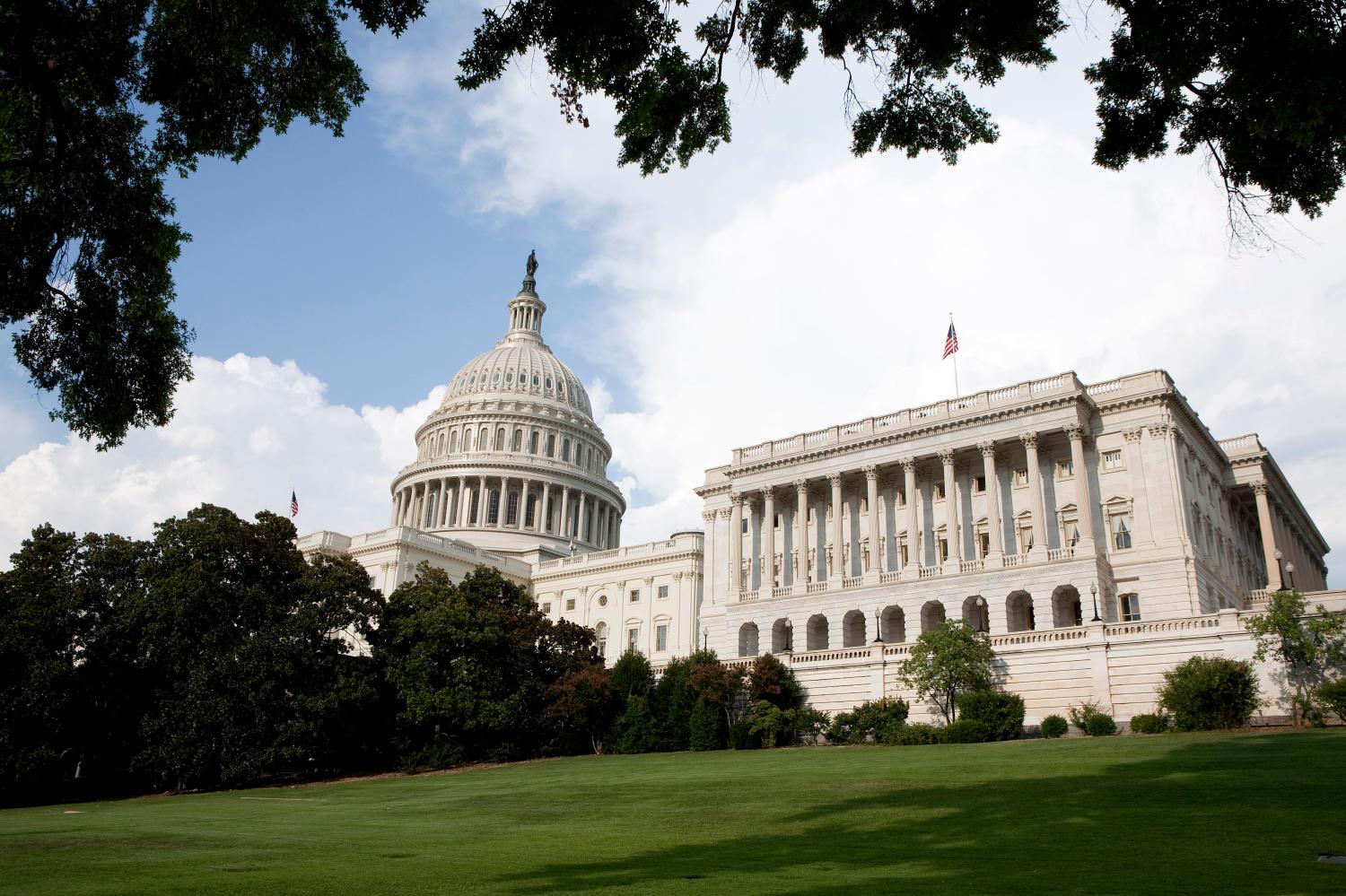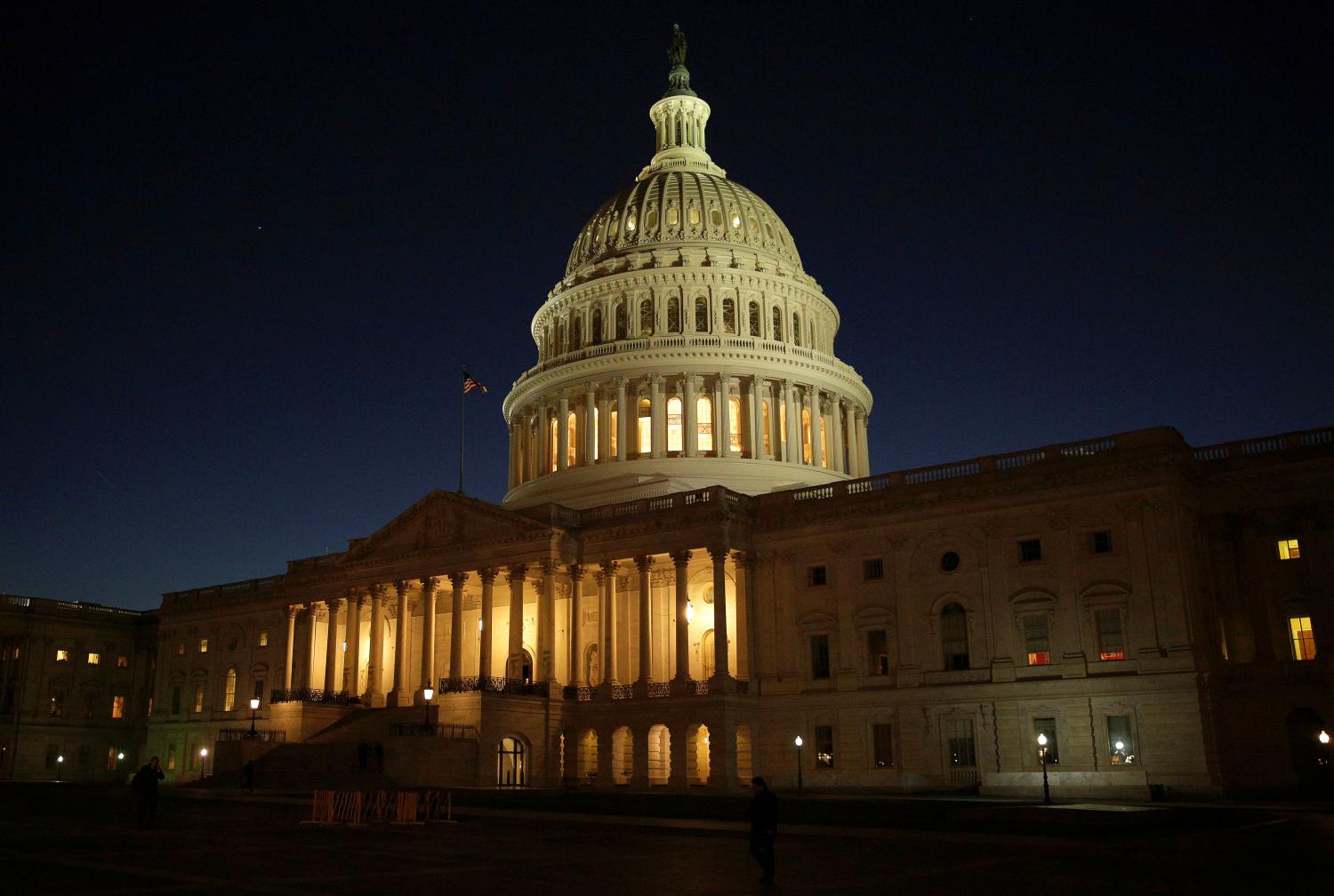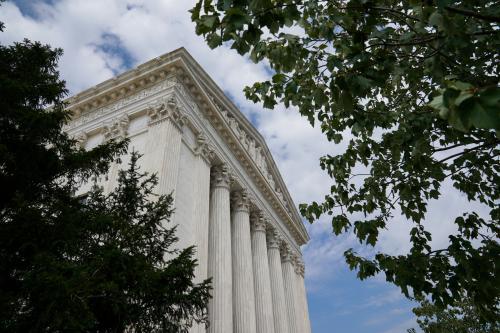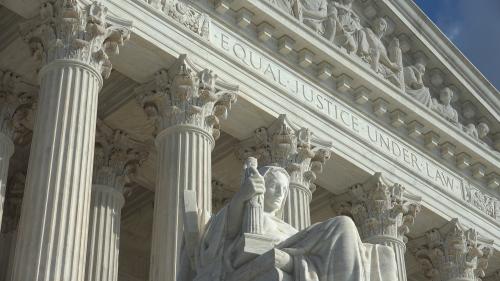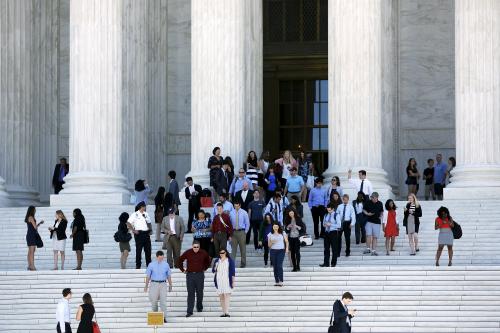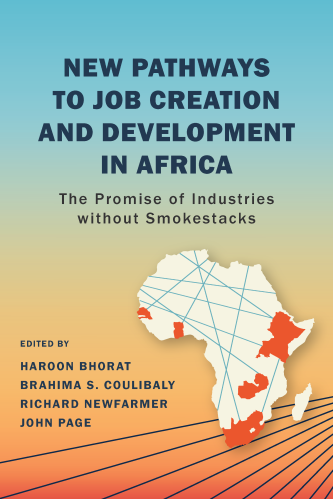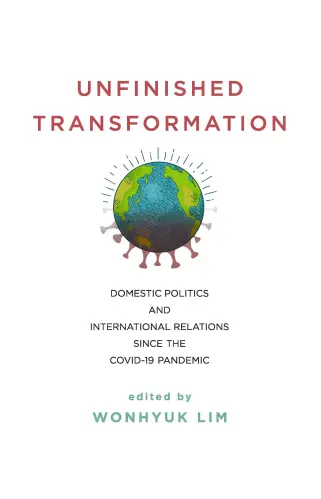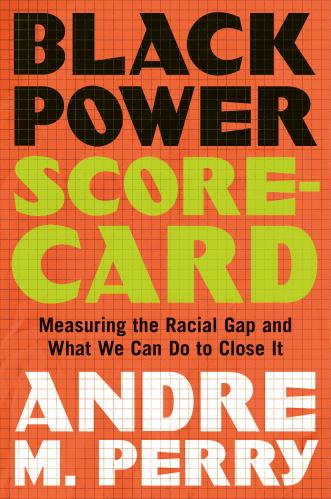This report is part of the Series on Regulatory Process and Perspective and was produced by the Brookings Center on Regulation and Markets.
Congress is seriously considering passing a law to overturn the most cited and most famous administrative law case of all time, Chevron v. NRDC (Chevron). In Chevron, decided in 1984, the Supreme Court held that courts should generally defer to reasonable agency interpretations of statutory provisions. In recent years, the Supreme Court has applied Chevron in high-stakes cases involving agencies like the EPA and the FCC.
The Separation of Powers Restoration Act of 2016 (SOPRA) would eliminate Chevron deference (as well as other forms of deference to agencies, which are not addressed in this post) and require courts to review statutory provisions anew—that is, to give the agency’s interpretation no consideration at all. Nobody doubts that Congress has the power to eliminate Chevron deference, which is premised on the notion that Congress intends to delegate to agencies. But there are sharp disagreements as to whether Congress should exercise this power, with differences resulting in large part from divergent beliefs about the efficacy and legitimacy of the administrative state relative to the judiciary. Proponents of SOPRA (primarily Republicans) generally argue that unelected administrative agencies have gained too much power by interpreting vague laws to unduly expand the reach of government, thereby usurping Congressional prerogatives. Opponents of SOPRA (largely Democrats) respond that the bill would hamper the ability of expert administrative agencies to address pressing public policy problems.
This debate assumes that Chevron really matters, and eliminating it will have a meaningful impact on how courts review agency interpretations of statutes. There are a number of good reasons to doubt that, though. This post offers three reasons why eliminating Chevron may not have much impact and then explains why it may indeed have an impact – but one different from what SOPRA proponents expect.
Judges may actually need to defer to agency interpretations in some cases.
First, judges may actually need to defer to agency interpretations in some cases. Generalist judges appreciate that better-staffed agencies have more expertise over complicated subjects such as energy pipeline pricing or environmental science. Looking at such issues anew requires significant time and resources that judges often lack in an era of growing court dockets and judicial vacancies. These dynamics are very likely to lead judges to defer to agencies in all but name in some cases, conducting the same analysis without citing the Chevron case.
Second and relatedly, judges may interpret SOPRA itself narrowly to reduce its impact. For instance, judges may decide that agency-specific law at issue (say the Clean Air Act) in a case compels deference, notwithstanding SOPRA, because Congress clearly sought to delegate interpretive latitude to the agency. Because specific law generally trumps a general law like SOPRA, the court would defer. Alternatively, judges may decide to read SOPRA’s scope, which applies only to “questions of law,” narrowly, and deem many questions to involve both “law and fact.” Challenges to agency interpretations of statutes often arise at the intersection of law and policy. SOPRA would not prevent the court from emphasizing agencies’ competence as fact-finders and deferring in such cases.
Third, some evidence suggests that Chevron does not induce as much deference as commonly thought, at least at the Supreme Court level. A study I coauthored with Professor William Eskridge, Jr., of Yale Law School, which covered over 1,500 Supreme Court cases, found that the justices fail to even apply Chevron in many cases where it should apply.1 Our study also suggests that justices may be more likely to apply Chevron when they are already inclined to agree with the agency on ideological grounds. In such cases, Chevron may act as a justification for the outcome rather than a framework used to decide the outcome.
All of this suggests that SOPRA may not have a substantial impact on how courts review agency interpretations of statutes. But this is not inevitable. While much of the research on Chevron focuses on the Supreme Court, recent research analyzing over 1500 circuit court decisions from 2003 to 2013 suggests that Chevron may have a greater impact on whether at least some lower federal appeals courts defer to agencies.2 If that is the case, then SOPRA could potentially reduce agency deference in some of the appeals courts, whose decisions are rarely reviewed by the Supreme Court. This may incentivize plaintiffs to engage in forum shopping by bringing cases in judicial circuits that are inclined to rule against agencies more often such as the Fifth Circuit, which has blocked a number of recent Obama administration actions.
Reduced judicial deference to agencies could alter how agencies make policy. Faced with less deference and a greater prospect of being overturned in court, agencies might invest fewer resources into interpreting statutes through resource-intensive rulemakings, instead shifting toward making policy case-by-case through a process known as “adjudication,” which is faster and cheaper than rulemaking. Similarly, agencies may also rely more heavily on informal interpretations of law such as guidance documents and speeches. Reducing the amount of rulemaking could make regulatory requirements more opaque to the public, which would be forced to read more arcane agency decisions and guidance manuals instead of relying on codified rules. Because rules are time-consuming and difficult to change relative to these other forms of regulatory policymaking, reducing rulemaking may also make policy more susceptible to rapid shifts in response to election results.
In short, repealing Chevron will have very uncertain consequences. There are good reasons noted above to suspect that repealing Chevron will have relatively little impact on agency behavior. That said, the proponents of SOPRA believe that Chevron currently allows agencies to enact overly expansive interpretations of statutes that courts cannot overturn and that SOPRA will address this problem. While this view is plausible, it seems equally plausible that SOPRA may encourage agencies and those seeking to challenge agencies to engage in more forum shopping. It may also discourage agencies from using rulemaking altogether. These changes could have the unanticipated and unwelcome effect of making policy more opaque and more political.
The SEC disclaims responsibility for any private publication or statement of any SEC employee or Commissioner. This Article expresses the author’s views and does not necessarily reflect those of the Commission or other members of the staff.
The authors did not receive financial support from any firm or person for this article or from any firm or person with a financial or political interest in this article. They are currently not an officer, director, or board member of any organization with an interest in this article.
-
Footnotes
- This study analyzed all Supreme Court decisions from 1984 to 2006 involving an agency interpretation of a statute. The analysis relied on descriptive statistics as well a simultaneous equation model of how justices decide in an opinion whether to grant Chevron deference and whether the agency wins or loses. The study concluded that deference regimes are applied inconsistently and that judicial ideology affects when deference is applied.
- The study concluded that agencies received Chevron deference in 75 percent of cases analyzed and won much more frequently when they received such deference. The study also noted significant disparities between judicial circuits, with some circuits applying Chevron much more frequently than others.
The Brookings Institution is committed to quality, independence, and impact.
We are supported by a diverse array of funders. In line with our values and policies, each Brookings publication represents the sole views of its author(s).

